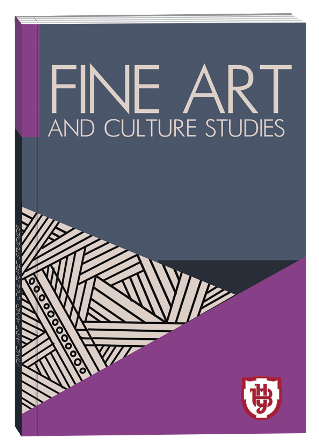TRANSFORMATIONS OF INTELLECTUALS’ ACTIVITIES IN THE PUBLIC SPACE OF MASS MEDIA
DOI:
https://doi.org/10.32782/facs-2025-3-2-28Keywords:
public intellectuals, science popularization, media culture, contemporary culture, self-education, media educationAbstract
The article analyzes the transformation of the role of the intellectual in the context of the information society and digital culture. The aim of the study is to define the specifics of intellectuals’ activities in the media space during the period from the 2000s to the 2020s. The analysis focuses on the significance of intellectuals’ engagement in public discourse and their influence on shaping public opinion, disseminating scientific knowledge, and strengthening critical thinking in the information age. It is noted that there are clear criteria for identifying an individual as an intellectual, namely the ability for critical reflection, the pursuit of truth, communicative activity, social responsibility, the capacity to act independently of public opinion, and to influence societal attitudes toward pressing issues. The study examines historical forms of intellectual communication – from public lectures of the 19th century to modern video platforms and social networks. The article demonstrates the impact of digital culture on the transformation of public intellectual activity, particularly the emergence of «media intellectuals» and anonymous science communicators. It is noted that while mass media provide opportunities for self-education alongside formal education, the rise of pseudo-intellectualism and anti- intellectualism poses a serious contemporary problem, leading to inadequate responses to societal threats. Modern digital media allow for much more detailed control over the dissemination of information compared to traditional media.Therefore, intellectuals must present their work across multiple platforms to engage more effectively with their audiences.The article emphasizes the need to shape a positive image of the intellectual as an active, communicative participant in cultural dialogue and a catalyst for civic consciousness. In this sense, the public intellectual is not only a source of knowledge but also a bearer of values, an analyst of change, and a visionary who outlines potential future scenarios.
References
Alatas S. F. Intellectual imperialism: definition, traits, and problems. Southeast Asian Journal of Social Science. 2000. Vol. 28, No. 1. P. 23–45.
Basaure M., Joignant A., Théodore R. Public intellectuals in digital and global times: the case of Project Syndicate. International Journal of Politics, Culture, and Society. 2022. Mar. 1. P. 1–23. DOI: 10.1007/s10767-022-09417-y
Ellis H. Masculinity and science in Britain, 1831–1918. London : Palgrave Macmillan, 2017. 252 p.
Hofstadter R. Anti-intellectualism in American life. – New York : Knopf Doubleday Publishing Group, 1994. 432 p.
Mannheim K. The sociology of intellectuals. Theory, Culture & Society. 1993. Vol. 10, No. 3. P. 69–80. DOI: 10.1177/026327693010003004.
Miller J. Do COVID-19 conspiracy theories form a monological belief system? Canadian Journal of Political Science. 2020. Vol. 53. P. 319–326. DOI: 10.1017/S0008423920000517
Dahrendorf R. Der Intellektuelle und die Gesellschaft. Die Zeit, 1963. 20 March. URL: https://www.zeit.de/1963/13/der-intellektuelle-und-die-gesellschaft (дата звернення: 18.06.2025).
Sowell T. Intellectuals and society. Rev. and enl. ed. New York : Basic Books, A Member of the Perseus Books Group, 2011. 680 p.
Tuffy Y. The mechanics and determinants of anti-science attitudes: a literature review. Sciences Po LIEPP Working Paper. 2023. No. 140. P. 2–39.
Василевська Т. Публічні інтелектуали: в пошуках призначення. Наукові записки Інституту політичних і етнонаціональних досліджень ім. І. Ф. Кураса НАН України. 2018. Вип. 1. С. 281–292.
Войтович Р., Білий О., Головаха Є. та ін. Інтелектуали і влада: альтернативи досвіду. Філософська думка. 2018. № 3. С. 6–36.
Гребенюк А. В. Роль публічних інтелектуалів у розвитку обдарованості. Обдарованість: методи діагностики та шляхи розвитку : матеріали наук.-практ. онлайн-семінару (Київ, 22–26 травня 2025 р.) / упоряд. М. Ю. Мельник, В. М. Шульга. Київ : Інститут обдарованої дитини НАПН України, 2025. С. 214–220.
Голобуцький П. В. Інтелігенція та інтелектуали. Енциклопедія історії України : у 10 т. / редкол. : В. А. Смолій (голова) та ін. ; НАН України, Ін-т історії України. Київ : Наукова думка, 2005. Т. 3 : Е–Й. С. 507–511.
Талеб Н. Н. Шкура у грі. Київ : Наш Формат, 2019. 304 с.








